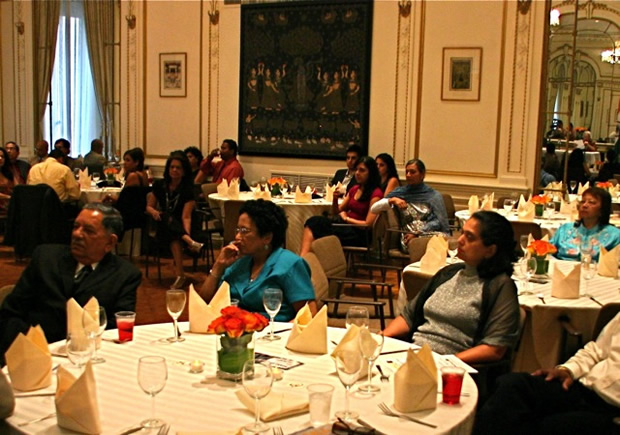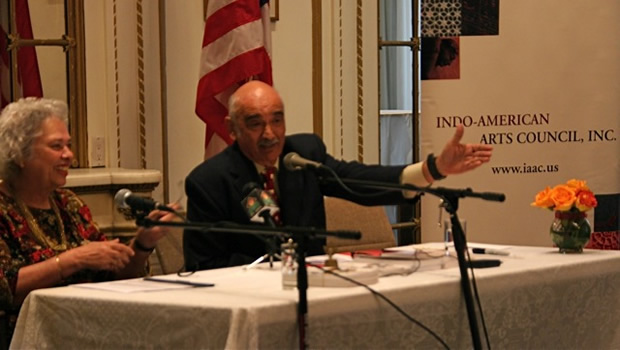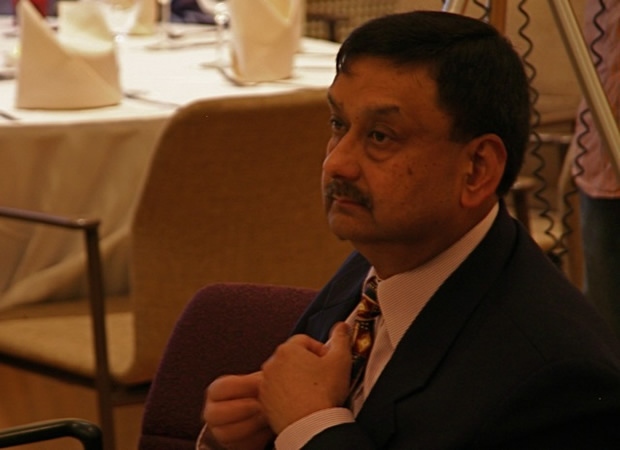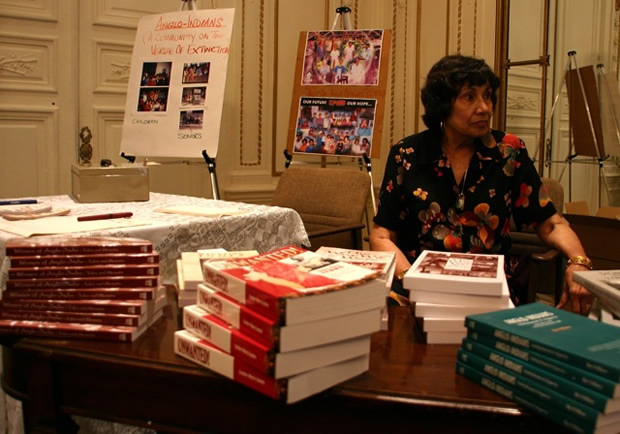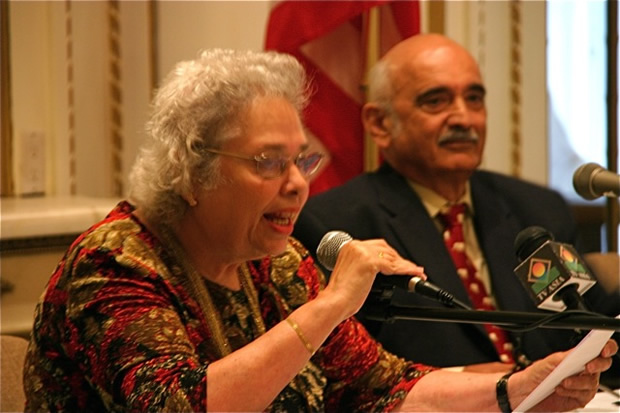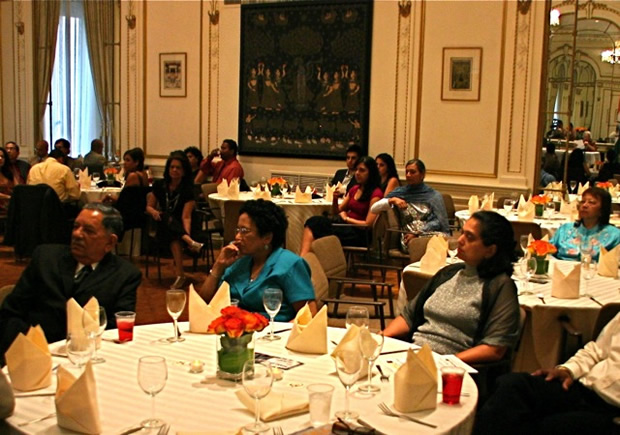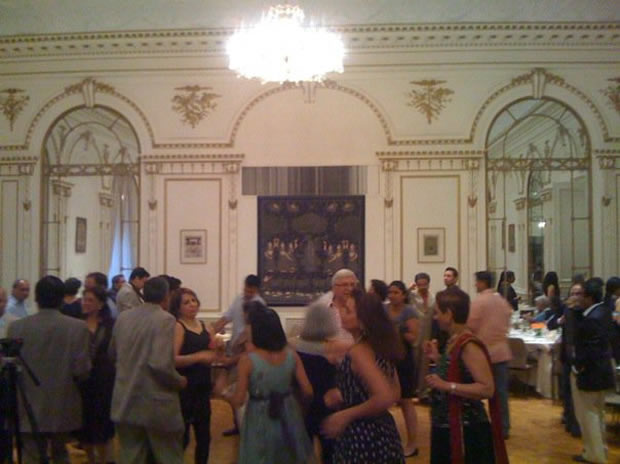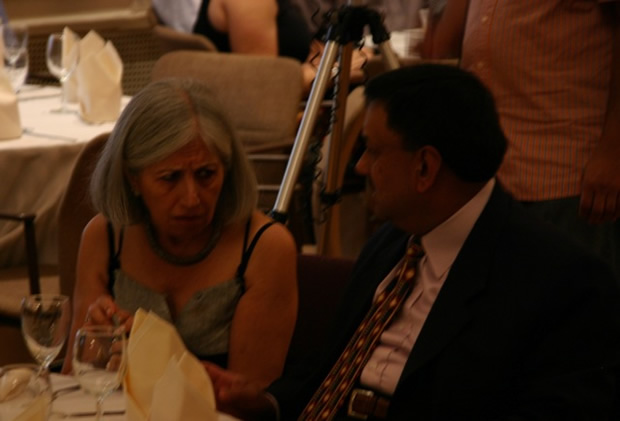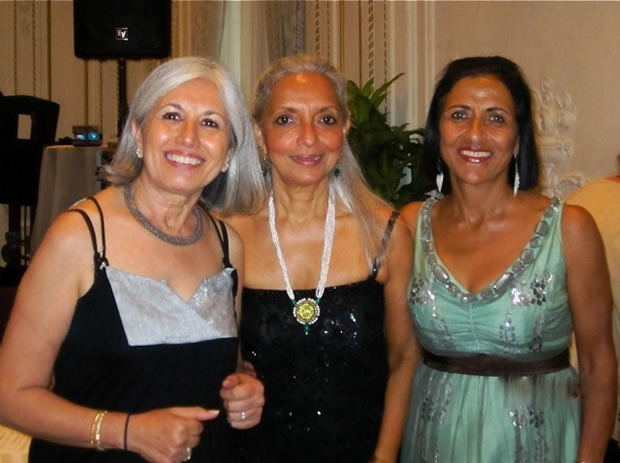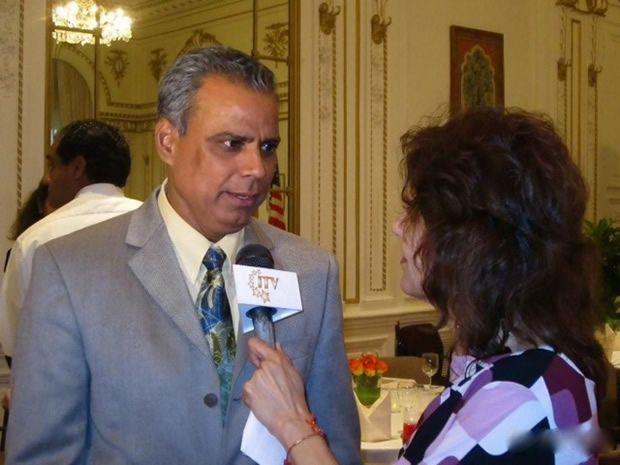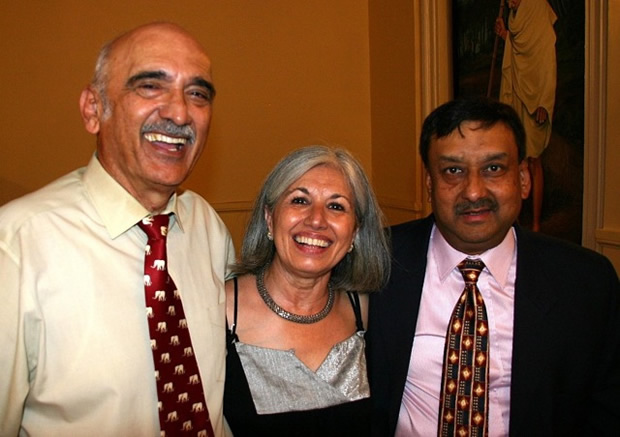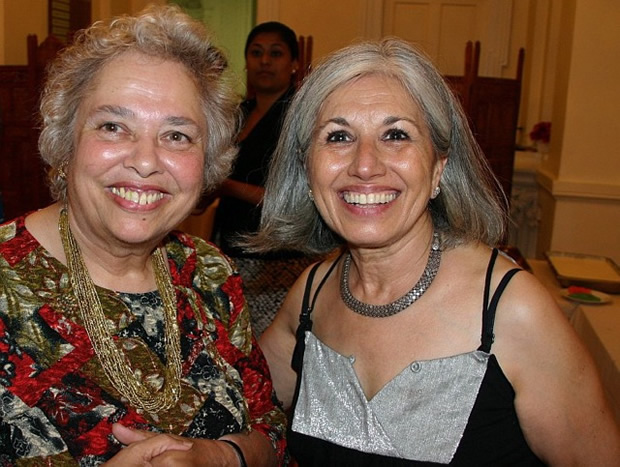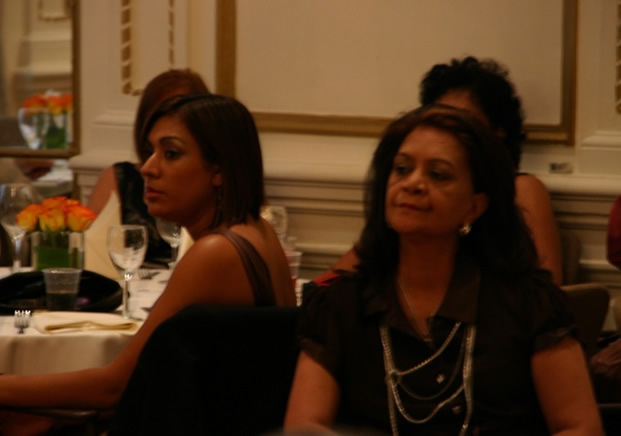
| Invitation |
| Schedule |
| Films |
| Books |
| Photos |
| Press Release |
| Reviews |
| stewardshipreport.com Anglo-Indian Day Celebration Combines the Best of British and Indian Cultures Through Film, Books, Music, and Food August 06, 2010 By Jitin Hingorani |
New York, NY – August 1, 2010. The presence of the British in India gave rise to a sub-culture that flourished for the better part of three centuries. The Anglo-Indians, a hybrid people of Indian and European descent, carved a unique niche for themselves in British India.
While their language, religion, and educational background were European, they developed a style of life that borrowed from both their British and Indian progenitors but jelled into something that was essentially their own. After India gained Independence in 1947, the majority of the Anglo-Indian community emigrated to the UK, Australia, and Canada.
Book reading and discussion by Blair Williams and author Margaret Deefholts Today, their children and grandchildren no longer have any psychological or emotional ties with India. In addition, most of these early Anglo-Indian emigrants are now elderly, and there is little doubt that their cultural heritage will, within a generation or two, be extinguished forever.
Ambassador Prabhu Dayal during book reading and discussion Ambassador Prabhu Dayal, the Indian Consul General, hosted an event on Sunday, August 1, 2010, to celebrate “Anglo-Indian Day” in New York City, along with the Indo-American Arts Council (IAAC) and the Calcutta Tiljallah Relief (CTR). Experience the film, music, food, and culture of Anglo-Indians on Sunday, August 1 at the Indian Consulate on the Upper East Side, the event took place at the grand ballroom of the former mansion on 64th and Fifth, built in 1903 for Ms. Carrie Astor. “The IAAC serves as a platform to expose New Yorkers to Indian art, films, books, and music, and we recognize the Anglo-Indian community as a part of our rich, Indian culture,” says Executive Director Aroon Shivdasani. “Anglo-Indians are one more ingredient in New York’s giant melting pot, and we hope this celebration creates awareness about the Anglo-Indian community.”
6 books on the Anglo-Indian culture for sale at the event In 2002 a publishing company was launched, to capture the Anglo-Indian culture. The guidelines stated that “these publications, will depict our Anglo-Indian way of life, and will cover a broad contemporary canvas. We would like to capture not only who we were but how we were in all walks of life—the way we lived, worked, rejoiced, loved, laughed, and cried.”
Book reading by author Margaret Deefholts Six book have been published since: “Anglo-Indians. Vanishing remnants of a bygone era” – Blair Williams (2002) “Haunting India” – Margaret Deefholts (2003) “Voices on the Verandah. Anglo-Indian Prose and Poetry” - Edited Margaret Deefholts and Sylvia Staub (2004) “The Way We Were. Anglo-Indian Chronicles” – Edited Margaret Deefholts and Glen Deefholts (2006) “The Way We Are. An Anglo-Indian Mosaic” – Edited Lionel Lumb and Debbie Van Veldhuizen (2008) “Women of Anglo-India. Tales and Memoirs” - Edited Margaret Deefholts and Susan Deefholts (2010)
The publication of these books have another vitally important and synergistic function: The gross proceeds of all sales—publishing costs are borne privately—will go directly to CTR Inc, an IRS approved charity helping less fortunate Anglo-Indians in India. The series thus serves a dual purpose: to preserve the culture of the Community and to provide much needed resources for its poorer members in India. “The Anglo-Indian community, in its modern sense, is a distinct, small minority community originating in India whose British ancestry was bequeathed paternally,” says Blair Williams, Founder of CTR, a New York-based non-profit organization that provides education and support to the Anglo-Indians living around the world. “While there is a small number of us living and working in New York, this day is a way for us to share our culture and sensibilities with the larger community.” The schedule for the celebration is as follows: 3 to 5 p.m. – Brief Welcome Statements and screening of Aparna Sen’s 36 Chowringee Lane, a film that explores the solitary life of an Anglo-Indian woman living in Calcutta. 5:15 to 6:30 p.m. – Book reading and discussion by Blair Williams and author Margaret Deefholts. 6:30 to 9 p.m. – Cocktails, dinner, and dancing with Consul General’s address at 7 p.m.
Distinguished guest dance to playing music by Anglo-Indian singers such as Cliff Richards, Englebert Humperdink, Tom Jones and others.
Indo-American Arts Council Founder and Executive Director Aroon Shivdasani sharing a casual moment with Ambassador Prabhu Dayal, the Indian Consul General
Indo-American Arts Council Founder and Executive Director Aroon Shivdasani with friends
ITV interviewed Deputy Speaker of New Jersey General Assembly Upendra Chivukula at the event
Blair Williams, Aroon and Ambassador Prabhu Dayal, the Indian Consul General
Author Margaret Deefholts with Aroon
Judy Menon, Assistant Director of the Consul General’s Office About Indo-American Arts Council: The Indo-American Arts Council is a registered 501(c)3 not-for-profit, secular service and resource arts organization charged with the mission of promoting and building the awareness, creation, production, exhibition, publication and performance of Indian and cross-cultural art forms in North America. About CTR: Founded by Blair Williams CTR is a U-S based non-profit organization established in 1999, whose sole purpose is to help the indigent Anglo-Indians living in India. CTR raises funds for senior pensions and education of Anglo-Indians. For more information about the organization, please visit http://www.blairrw.org/ctr/index.php. Photo Credits to Julian Williams and Indo-American Arts Council |
| Source: http://stewardshipreport.com/index.php/anglo-indian-day-celebration-combines-the-best-of-british-and-indian-cultures-through-film-books-music-and-food.html |
